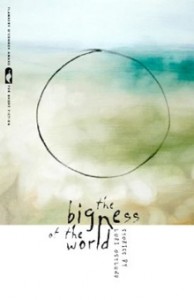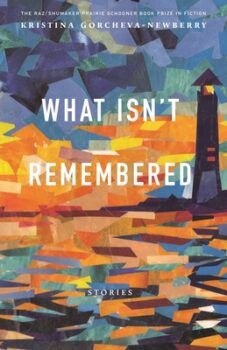 Each week we give away several free copies of a featured novel or story collection as part of our Book-of-the-Week program. Last week we featured Urban Waite’s debut novel The Terror of Living, and we’re pleased to announce the winners: John Taylor, Jodi Paloni, and Michelle Hoover.
Each week we give away several free copies of a featured novel or story collection as part of our Book-of-the-Week program. Last week we featured Urban Waite’s debut novel The Terror of Living, and we’re pleased to announce the winners: John Taylor, Jodi Paloni, and Michelle Hoover.
Congratulations! Each will receive a signed copy of this novel.
This week we’re featuring Lori Ostlund’s debut collection The Bigness of the World. Stories from this book have appeared in The Georgia Review, New England Review, The Kenyon Review, Prairie Schooner, Bellingham Review, Hobart, and Blue Mesa Review. Additionally, “All Boy” was selected for the 2010 Best American Short Stories anthology and “Idyllic Little Bali” received the Lawrence Foundation Award. The collection as a whole has garnered numerous honors, as well: the Flannery O’Connor Award for Short Fiction, the California Book Award for First Fiction, the Edmund White Debut Fiction Award, and a 2009 Notable Book Award from The Story Prize. It was also a finalist for the Lambda Award and shortlisted for the 2010 Saroyan International Prize for Writing.
In the introduction to his recent review of the book, J.T. Bushnell writes:
Lori Ostlund’s debut story collection, The Bigness of the World (University of Georgia Press), recently won the Flannery O’Connor Award for Short Fiction, and I can’t help but imagine how O’Connor might react to its stories, full as they are of godless homosexuals scattered across the globe, whereas O’Connor’s work is unapologetically regional and almost dogmatically Catholic. Even with this wide discrepancy in subject matter, Ostlund’s book is one O’Connor might have chosen herself, so similar are their aesthetics. In fact, Ostlund’s characters in many ways resemble the ones that O’Connor is always pushing toward their inevitable moments of grace—stubborn, overeducated folks who value rationality and discretion to the point of personal isolation. It’s a book full of Hulgas from “Good Country People,” except that it would take a Bible saleswoman to seduce them, and they’re all too fussy about language to ever choose a name as unattractive as “Hulga.”
The reason O’Connor might find these stories appealing is because they are not about lesbianism any more than “Everything That Rises Must Converge” is about racism, not about traveling the world any more than “A Good Man Is Hard to Find” is about traveling to Florida. In her best stories, Ostlund, like O’Connor, pushes beyond mere subject matter to describe deeper aspects of the human condition, aspects all of us can recognize, and she does it by employing O’Connor’s “two qualities that make fiction,” as she famously describes in her book of craft essays, Mystery and Manners, the title of which gives away the two qualities she means.
[To continue reading Bushnell’s review, please click here.]
If you’d like to be eligible for this week’s drawing (and all future ones), please visit our Facebook Page and “like” us. As we did last week, we’ll be giving away three signed copies of this title. To everyone who’s already a fan, thanks again! What we want to do is not only find ways to expand our readership, but also to put books we love in the hands of readers.
So please help us spread the word!





